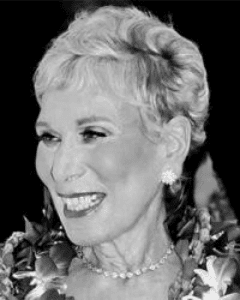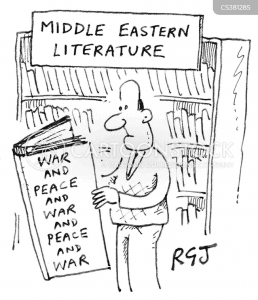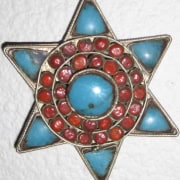War?! Not again…..
by Pratibha (Shuli) Eastwood
The Viewpoints goal: community building by sharing ideas and experiences
Editor’s Introduction — STRAIGHT TO THE BOTTOM LINE
Actually, to Shuli’s next-to-bottom line:
“Now I am also happy to share that I am an Israeli Jew.”
There will be those who say:
“You must be anti-Palestinian!” with the “you” applied not only to Shuli, but also to the editors who chose to publish her essay and the readers who choose to read it.
NO! If the Palestinians could say: “Now I am also happy to share that I am Palestinian Arab” and both Jew and Arab could make their statements without trying to tear each other’s throats out, then perhaps both could get to her true bottom line: “We are great, we are like everyone else: Human.”
Shuli’s viewpoint looks over a lifetime of “otherness,” revealing the corrosive effects of fear and hatred on one’s personal identity. In her comments on “the nice things that war brings” she identifies the addictive aspect of defining and rejecting outsiders; it pulls or pushes the insiders closer together. Exclusion can strengthen belonging – both among the excluders and the excluded.
It is a long and tortuous journey to “We are great, we are like everyone else: Human.” Shuli gives us a glimpse of one itinerary.

Pratibha Eastwood
From the moment I was born, I almost drowned in a tsunami of Too Much Information (TMI) and, consequently, feelings of being at the risk of being annihilated—first for being Jewish, and later for being an Israeli Jew.
When I left the country for an extended time to study in Switzerland, I remember being attacked by drunken guys who screamed at me and some younger kids laughing joyously coming down the stairs as I was taking them on a walk: “Hitler didn’t do enough, get out of here dirty Jews.” I froze, shocked and terrified. Like Mother Goose, I felt very protective of the kids with me. We silenced and, while trying to disappear into the walls, we snuck out into the snowy day.
Before that, as a child still in Palestine before Israel was born, I learned to be fearful, hungry, and distrustful of the seemingly extremely dangerous, hostile world around us: the Germans who were swiftly progressing towards Tel-Aviv; the English Mandate soldiers who ruled the country with guns; and the Arabs who were throwing stones in the streets.
War was a way of life for us as children. We even created games of hide-and-seek, naming them Israelis  against Arabs or the other way around. But in truth, we Israelis were a proud group of intelligent people who joined together to create a start-up nation and shone with our growth and achievements. I felt safe in the state of Israel, able to walk with my head up and a smile on my face, unlike being in Europe by myself as a Jew pretending not to be one.
against Arabs or the other way around. But in truth, we Israelis were a proud group of intelligent people who joined together to create a start-up nation and shone with our growth and achievements. I felt safe in the state of Israel, able to walk with my head up and a smile on my face, unlike being in Europe by myself as a Jew pretending not to be one.
From all the wars we had survived, we learned the nice things that war brings in its fold: a unity and family-like bonding between all of us under attack. It was us against them. We were always a smaller country against a larger force—either the Germans or the seven countries that surrounded us.
But it was only later in school where we had two different History classes: onefor Jewish history and one for the world at large, that I truly learned that being a Jew is dangerous—something to hide from the world for self-protection. It seemed that over many centuries—and maybe eternity, Jews were persecuted, abused, killed, and chased out of their homes—all while being blamed for their demise, as if it was their fault or creation.
When this latest intense mutual killing between Hamas in Palestine and Israel happened this month, the same story came through in the media: Israel is the aggressor and needs to be punished or condemned. It is our fault even though we were defending ourselves from purposeful harmful attack by Hamas, one of the Palestinian terrorist groups. The attack was sudden and intended to hurt innocent civilians. Israel defended itself, and cleverly decided to demolish the tunnels and headquarters of the violent aggressive missiles with clarity and force. The Palestinians used videos to make it look once again like the defenders were the aggressors.
Yes, Israel was going for the “Throat” of the attackers. But here is a question for you, an allegory I heard from a friend: If, during an attack in WWll, only 10 British people were killed, and 100 Germans died, would the British be at fault—or would it be OK (appropriate?) for the Germans to be hurt more?
I am not a believer in war or killing, and became a conscientious objector to killing as a child. But once again Iran, Palestine, Syria, and Lebanon all colluded in attacking the small territory of Israel, with full intent to harm. Their claim is that Israel should give back all the territory they live on and disappear from the earth—nothing less will do. If we look at America—who conquered much property and claimed many lives of the American Indians—under the Palestinian assumption, America should return Manhattan to the Indians… It is ok to demand this from Israel but not of any other country.
What’s more, they refuse the most obvious two-states solution. They won’t rest until they kill every Israeli Jew and take over the entire territory. Unfortunately, history is repeating itself: anti-Semitism is getting support from the world yet again. For that reason, it was instilled in me that being a Jew is something to hide—unless you are in Israel where you can defend yourselves together and live as normal citizens. Is Israel another Ghetto?
With that history in mind, it is easy to understand why I decided to hide my Jewish name when I became an American citizen. I am now Pratibha (a Sanskrit spiritual given name) Eastwood (through marriage to an English descendant in Berkeley). So, for those who ask me who Shuli is in my memoir From Mud to Lotus: I meant to behave but there were too many other options—and who is Pratibha, here is my true confession: My Hebrew name is Shuli, my American name is Pratibha. Coming out of grief and fear of being a persecuted minority, I hid—until now when I so openly shared my life in my book. Now I am also happy to share that I am an Israeli Jew. We are great, we are like everyone else: Human.



That was a great article, Pratiba. I borrowed your book from Pru, and intend to read it. Right now I am reading Michelle Obama’s autobiography, so after that I will read your book.